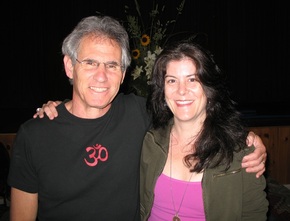Mind Health, and what I call healthy mind practices, are about optimizing balance, resilience, and happiness. It’s about living with clarity, vibrancy, and a sense of peace–and being present for ourselves and our relationships. That’s how I see it.
However, when it comes to mental health, we hear more about mental illness. We know that mental illness and seeking treatment are still stigmatized in our culture. For starters, insurance companies  insist on a diagnosis from a manual (DSM-5) that catalogs “mental disorders” and people who use mental health services are called “patients.” People who might benefit from seeing counselors or therapists have concerns about having a mental health diagnosis as part of their permanent medical record. Others fear opening “old wounds,” favor a “go it alone” approach, or follow a family pattern of reluctance to get support. I hear about this daily:
insist on a diagnosis from a manual (DSM-5) that catalogs “mental disorders” and people who use mental health services are called “patients.” People who might benefit from seeing counselors or therapists have concerns about having a mental health diagnosis as part of their permanent medical record. Others fear opening “old wounds,” favor a “go it alone” approach, or follow a family pattern of reluctance to get support. I hear about this daily:
-the grieving person who waited 10 years to speak of her guilt;
-the ideal employee who is so stressed and anxious he can’t focus–let alone sleep–any more;
-the distant or anxious spouse who will not come to counseling despite a chaotic, joyless, and/or sexless home life;
-the disapproving parent who believes talking to strangers about problems is for weak or crazy people.
And my clients, themselves, who believe that last message a little bit, but had the courage to contact me anyway.
Mental illness IS a serious problem and needs care and treatment of course. But then there is everyone else who is not mentally ill and who would benefit from and find greater happiness by seeking out professional help to support a healthy mind.
In honor of everyone who is in this category and the people who love them, I put together the following Top 10 list.
Top 10 Reasons For Seeking Clarity and Support
# 10 Like most people, you have a habit or way of reacting to things you want to change, but haven’t been successful so far on your own. It may be something you don’t talk about much.
# 9 Life is challenging! It is normal to be unprepared for situations or crises that arise.
# 8 Not everyone has an airtight support system.
# 7 You want to be in a relationship, but were not taught how to choose a partner and make it work.
# 6 Healthy mind practices build resilience and can help prevent problems in the future. There is no vaccination against mental illness.
# 5 Relationship troubles are not necessarily because someone is mentally ill, but you still may need and want unbiased guidance to clear hurdles faster.
# 4 Grief reactions mimic so-called mental illness symptoms. Grieving people are not mentally ill, but may need a guide to navigate the upheaval a loss can cause.
# 3 Stress is an epidemic and impacts mind, body, spirit, and relationships. Healthy mind practices counteract all of the cultural norms in place (job overload, technology, etc) for chronic stress.
# 2 Unlike previous generations, we know that stress can cause or aggravate health problems. If we don’t resolve stress, we become physically ill.
# 1 A healthy mind is the best predictor of a happy life! A healthy mind brings a sense of vibrancy, clarity, and peace. It makes us present for ourselves and for relationships.
To find out more about mind health and healthy mind practices and what that could mean for you, check out my web-site and blog posts.




